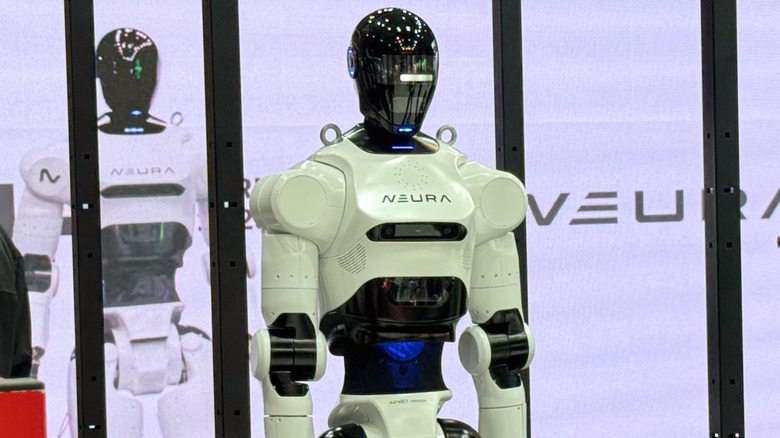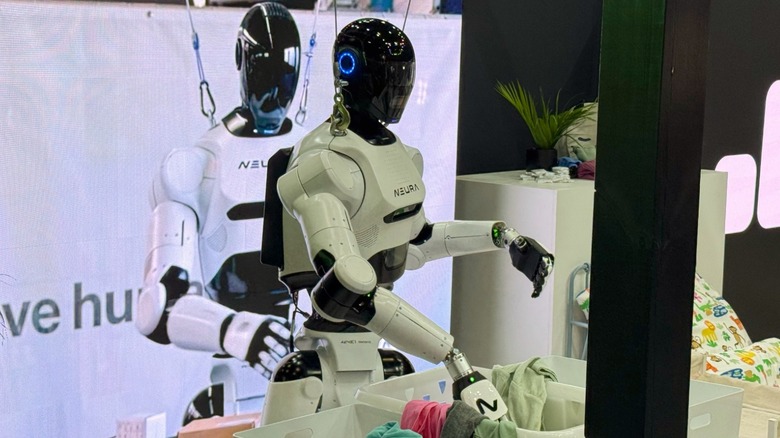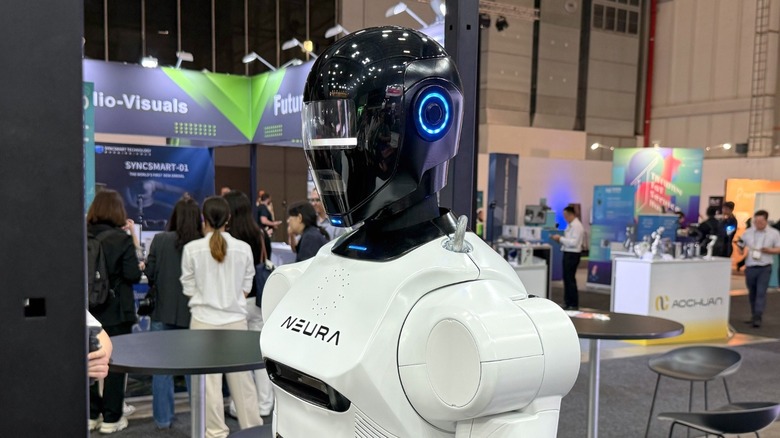IFA 2025: Neura's Humanoid Robots Could Become Everyday Products Sooner Than Expected
German humanoid robot brand Neura is one of the highlights of IFA 2025. During the show, the company previewed some of its latest innovations, including a humanoid robot called 4NE1 (pronounced "for anyone") and MiPA (My intelligent Personal Assistant), a wheeled mobile manipulation platform.
While IFA attendees might have been amused by 4NE1 sorting white clothes from colored ones into multiple baskets, they also saw MiPA tidying up plushies in a child's bedroom. These seemingly simple demos point to a bigger story: Neura believes it can bring humanoid robots into the mainstream sooner than expected. Think "I, Robot" but with a happier ending, whether you prefer Will Smith's movie adaptation or Isaac Asimov's original book.
During the show, BGR spoke with Neura's head of engineering, Dr.-Ing. Arne Nordmann, about the company's latest 4NE1 robot, first introduced in June at the Automatica event. According to Nordmann, these German-made robots are already being used in enterprise settings and could reach the consumer market soon.
Neura's humanoid robots will focus on three main tasks
Ever wonder what people might do with a six-foot-tall humanoid robot that weighs around 176 pounds, is packed with cameras and sensors, and can learn infinitely through AI? Dr.-Ing. Nordmann says Neura is focusing on three main categories of tasks: "dirty, dull, or dangerous."
"So every job that is dirty and humans don't want to do that is a primary goal for us. When it's dull, very repetitive, and people get bored and dislike the work, that's another good target. And when it's dangerous. That is the main set of tasks we are targeting."
Right now, the company is working to refine these core abilities. Its longer-term goal is to let developers create additional skills for the robots, similar to how Apple provides the iPhone hardware and operating system but relies on third-party developers to fill the App Store.
Still, Neura has drawn an important line about what its robots won't do: "There is a lot of interest in new technology, especially humanoid technology. We see that, and also from the military. But this is a clear commitment from the company right from the start: we're not doing that. That's also the slogan of the company: We serve humanity. We are very convinced that serving humanity means no involvement in military activities. So that's what we make clear to all parties and systems."
AI makes these robots smarter, but it still lacks the big leap
For now, what prevents these robots from hitting the mass market is their limited AI capabilities. The hardware is already good enough to perform many human tasks, and the humanoid form factor helps. But making these robots reliable enough to run errands for us is still a major challenge.
Even so, they're making progress by learning through repetition. "We see them trying out new grasps that we didn't explicitly train. That's the magic of physical AI—robots learning from real-world interaction," Nordmann said.
Consumers might have to wait a couple more years before buying one, but Neura is already partnering with companies to deploy these robots in factories. There, they can handle repetitive tasks efficiently in a robots-only environment. If that trend continues, the next IFA might look even more robotic than this one, as the trade show continues to lead innovation through and from Europe.


